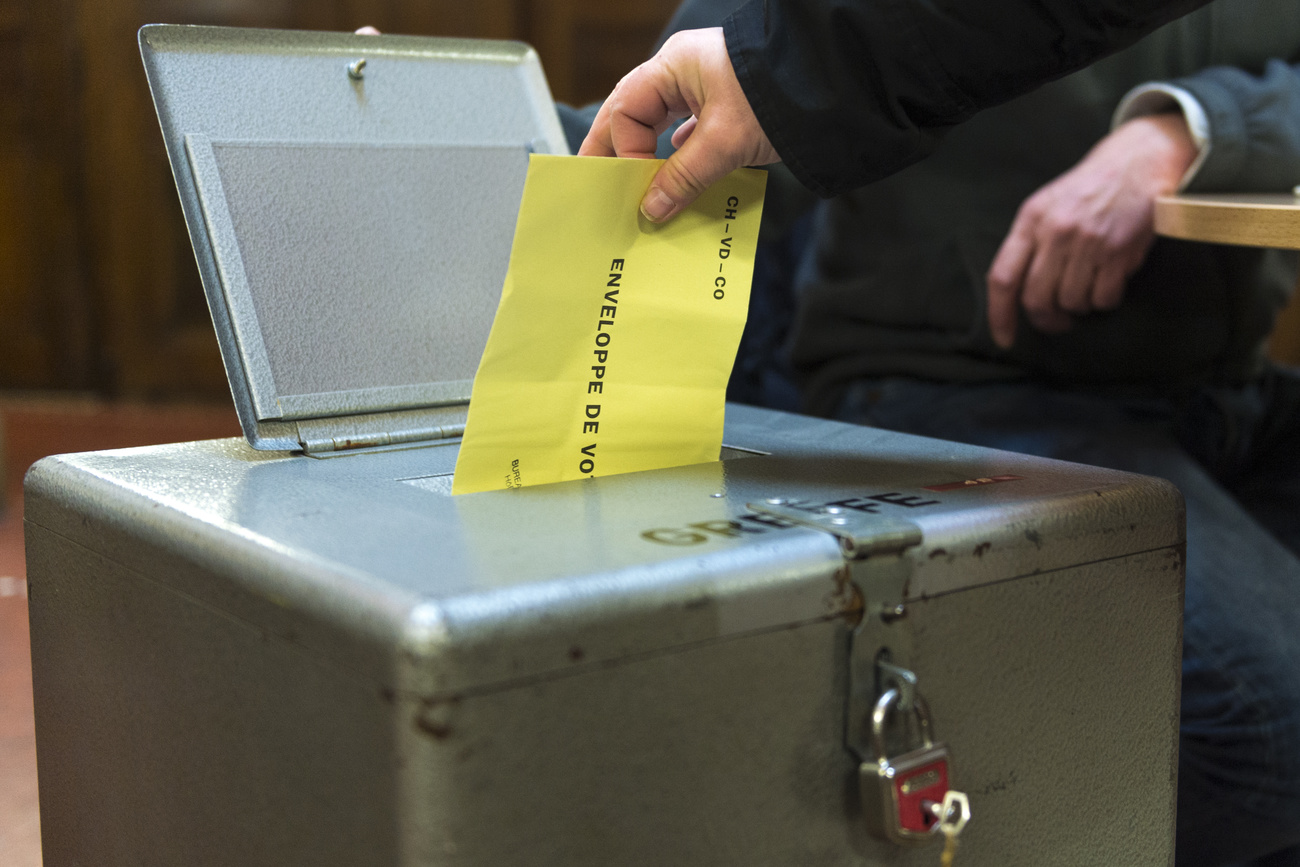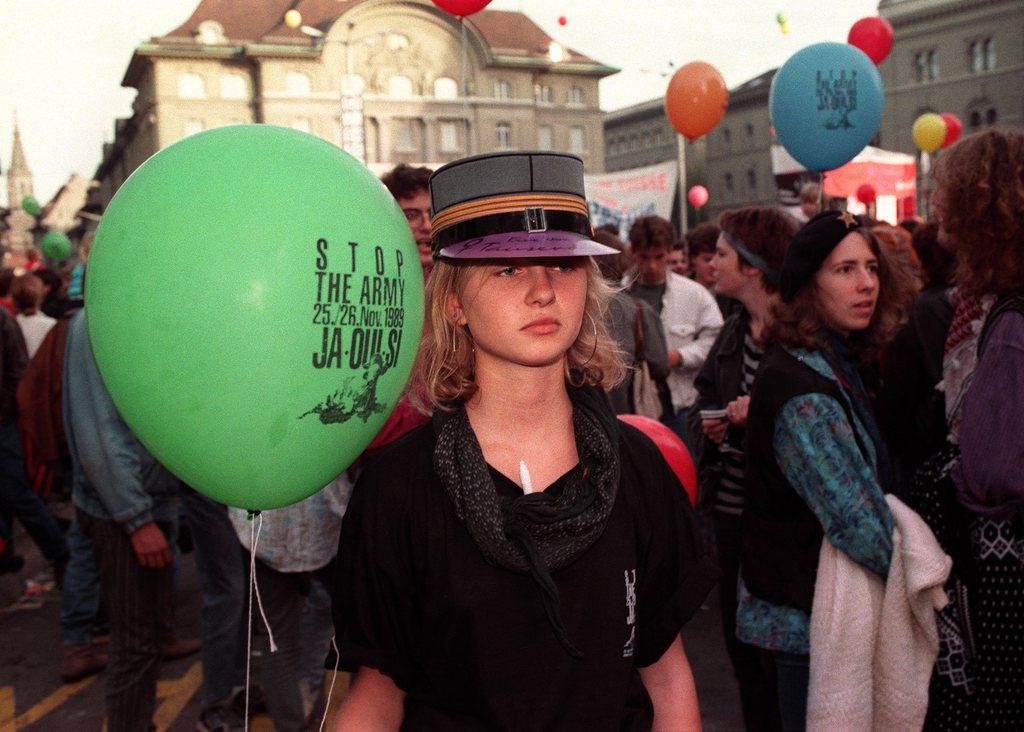
‘Vote where you live’: what this would mean for the Swiss Abroad
A new people’s initiative is calling for a basic right to naturalisation. One of the arguments is that people should exercise their political rights where they live. If taken to its logical conclusion, this would have massive consequences for the voting rights of the Swiss Abroad.
In the summer, I wrote an article in this series on the history of voting rights for the Swiss Abroad. My assessment remained mixed, as deficits remain in the delivery of election material and in participation.

More
Swiss Abroad views: the fight to exercise political rights
To my surprise, I receive a lot of reaction to this column: the Swiss Abroad are privileged because many of them have dual citizenship, says some readers. This contradicts the principle of “one person, one vote”, is a typical statement.
Other critics state that foreigners who have no chance to have a political say in Switzerland without naturalisation are at a real disadvantage. This is where the pressure should be applied, they say, not for the Swiss Abroad.
The most succinct objection came from a former Green politician: according to him, the right to vote for the Swiss Abroad was questionable in terms of democratic policy. “Instead, political rights for all should exist only in the country where they live, regardless of origin and age,” he said.
All the feedback came from the Aktion Vierviertel alliance. This was launched in the election year around a popular initiative for a modern citizenship law. This popular initiative demands a basic right to naturalisation in Switzerland for everyone who lives here.
This refers to foreigners who have been legally resident in Switzerland for five years, have not been sentenced to a long-term prison term, do not endanger the internal and external security of Switzerland, and have a basic knowledge of a national language. That everyone should have political rights only in one country is not found in the text of the initiative.
But apparently it is part of the arguments of the left-green-liberal supporters of the initiative. If taken to its logical conclusion, however, this argument would mean the end of voting rights for the Swiss Abroad in their old home country.
Two views in theory, usually a mixture in practice
In the 21st century, there are theoretically two relevant views on citizenship and thus also on political rights:
– To detach the right to vote from origin and to tie it to the centre of life. In its pure form, this jus soli is oriented towards the easily ascertainable place of birth.
– Jus sanguinis works differently. It is based on the nationality of the parents, which is transferred to their children and remains, no matter where one moves and lives.
In practice, pure forms are rare, mixtures of both are more common. To use “one person, one vote” as an argument for fewer voters would be against the idea behind it: the slogan became popular at the end of the 19th century, when the aim was to reduce the privileges of citizens over workers in the right to vote. In the 20th century, it was used to justify the right to vote of the ethnically discriminated.
Moreover, if the tables were turned and the principle were used against the Swiss Abroad, there would be no guarantee that the same rules would apply abroad as could be introduced in Switzerland.
Democracy research worldwide
The V-Dem project of the University of Gothenburg has been evaluating political systems worldwide for years. According to the project, mature democracies give just as much weight to factors such as secure fundamental rights, a functioning rule of law, promoted equality, public negotiations and political participation as they do to the election of a parliament.
Switzerland is regularly praised by the international research team. Political participation is particularly emphasised. There are three reasons for this: the existence of elections and referendums, the democratisation of the constituent states, cities and municipalities, and citizen participation in the political process.
Should this be changed?
Peculiarities of the Swiss understanding of democracy
One of the peculiarities of Switzerland is that, although the institutions of democratic participation have been greatly expanded, the right to use them has been restricted for certain groups.
Women were the most important group to experience this for a long time. While men had their extended direct democracy until 1971, they had nothing!
But they were not the only ones: poor people were also excluded for a long time. Swiss Abroad were also affected.
Switzerland still does not grant political rights to people with disabilities or to people under the age of 18.

More
Who can vote in Switzerland? Who can’t?
For a long time, the Swiss image of democracy included the self-image that one was something special, and accordingly political rights were regarded as a privilege that was supposed to be hard to acquire. Only the global debate on contemporary democracy has opened the way to a redefinition and expansion of the use of political rights.
For the Swiss Abroad, the formal turning point came in 1966 with a constitutional article, and the de facto turning point came after 1992 with postal voting.
For people with disabilities, we adopted the corresponding UN Charter in 2014. Canton Geneva was the first to include people with disabilities in political rights in 2020.
Now we are at work with the very young: canton Glarus introduced the right to vote at 16 already in 2007; at the federal level a decision is still pending.
The trend is slow, but obvious
The highest hurdle is indeed the right to vote for foreigners. Only a few municipalities and two cantons have introduced it so far.
Numerous attempts to extend it have failed, however: the majority of voters oppose it. The main obstacle to political participation will remain citizenship.
The worldwide trend is to reduce privileges concerning the right to vote rather than to establish them anew. Even if the process is visible only gradually and in the long term.
In principle, this speaks in favour of Aktion Vierviertel’s initiative, but not against the right to vote and to stand for election for the Swiss Abroad. A combination of both would not increase the chances of the initiative, but rather lower them.
Edited by Marc Leutenegger. Translated from German by DeepL/ts
Popular initiatives have a hard time in Switzerland, as this article from our archive explains:

More
Every three months, a revolution

In compliance with the JTI standards
More: SWI swissinfo.ch certified by the Journalism Trust Initiative






























You can find an overview of ongoing debates with our journalists here . Please join us!
If you want to start a conversation about a topic raised in this article or want to report factual errors, email us at english@swissinfo.ch.